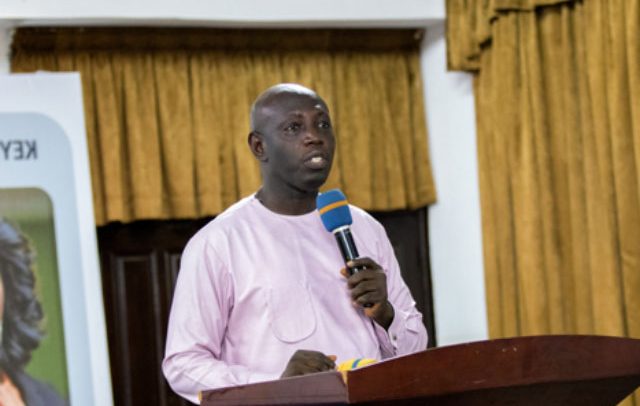The writer
“The alarming rise in fraud cases within Ghana’s banking sector is not just a statistical trend, it is a glaring red flag signaling systemic vulnerabilities that demand immediate and decisive action.”
The Bank of Ghana (BoG) releases an annual fraud report to highlight emerging fraud trends in the banking sector, reinforcing financial system stability. The 2024 report analyzes fraud risks across Banks, Specialized Deposit-Taking Institutions (SDIs), and Payment Service Providers (PSPs), concluding with directives to strengthen security and combat fraud.
The latest data reveals concerning trends in Ghana’s banking sector, with fraud cases increasing by 5% from 15,865 in 2023 to 16,733 in 2024. More alarmingly, the financial risk exposure, measured by Value at Risk (VaR), grew at an even faster rate of 13%, rising from GH¢88 million to GH¢99 million during the same period. This indicates that while fraud incidents are becoming more frequent, each case is also proving more financially damaging to institutions.
Value at Risk (VaR) for banks estimates the maximum potential loss from fraud over a set period (daily/monthly/yearly) at a given confidence level (e.g., 90%, 95%). When examining the daily impact, banks are losing approximately GH¢271,233 to fraudulent activities every day, which accumulates to about GH¢8.25 million monthly and totals the reported GH¢99 million annual loss for 2024.
These figures underscore how fraud represents a persistent and significant drain on the financial system, necessitating constant vigilance and robust preventive measures. The analysis of confidence levels in risk assessment provides further insight into potential exposure. At a 90% confidence level, there remains a 10% chance that actual losses could exceed the GH¢99 million VaR estimate, representing a moderate risk tolerance. In effect, the banking sector faces a dual challenge of rising fraud frequency and escalating financial losses, with institutions hemorrhaging an estimated GH¢271,233 daily.
Equally concerning in the report is the 33% rise in staff involvement in fraudulent activities, with cash theft accounting for 75% of these cases. These figures underscore a pressing need for the Bank of Ghana (BoG) and other stakeholders to address the root causes of this menace before it erodes public trust and destabilizes the financial system.
The BoG has rightly expressed concern over the steady increase in staff-related fraud within regulated financial institutions. While the call for stronger internal controls, enhanced due diligence during recruitment, and continuous staff training is commendable, more must be done to translate these measures into tangible results.
The dismissal of only 43% of staff implicated in fraud, as highlighted in the report, suggests a lax disciplinary culture and a legal system that inadvertently enables impunity. This leniency undermines deterrence and perpetuates a cycle of misconduct.To curb the escalating fraud and reduce the VaR, the government and the BoG must adopt a multi-faceted approach. First, the BoG should enforce stricter penalties for financial institutions that fail to implement robust anti-fraud measures, including hefty fines or sanctions.
Second, the legal process for prosecuting fraud cases must be expedited to ensure swift justice, thereby discouraging potential offenders. Third, the BoG could collaborate with the Judiciary to establish specialized courts for financial crimes, ensuring that cases are handled with the urgency and expertise they require.
Additionally, the government should invest in advanced fraud detection technologies, such as artificial intelligence and machine learning, to identify suspicious transactions in real-time. Public awareness campaigns on the consequences of fraud, targeting both customers and staff, could also foster a culture of accountability. Finally, whistleblower protections must be strengthened to encourage reporting without fear of retaliation.
“The fight against fraud in Ghana’s banking sector is not just a regulatory obligation, it is a moral imperative. Only through collective vigilance, unwavering enforcement, and a zero-tolerance policy can we safeguard the integrity of our financial system and restore the confidence of the Ghanaian people.”
The time for action is now. Let us act decisively to protect our economy from the scourge of fraud.
By Prof. Isaac Boadi, Dean, Faculty of Accounting and Finance, and Executive Director, Institute of Economic Research and Public Policy (IERPP)


